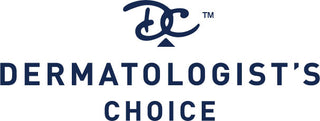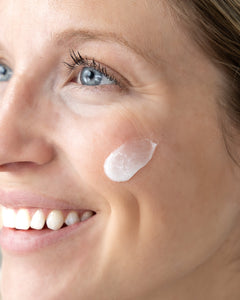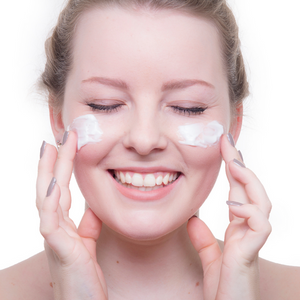A - Ascorbic Acid (Vitamin C): A potent antioxidant that helps brighten the skin, reduce the appearance of fine lines, and even out skin tone. It also boosts collagen production, making it an anti-aging ingredient. Glycolic acid is more effective at exfoliating the skin than ascorbic acid.
B - Benzoyl Peroxide: A potent anti-acne ingredient that works by killing acne-causing bacteria and reducing inflammation. It can be drying to the skin and should be used with caution. Glycolic acid is not typically used for acne, but it can help improve the texture and tone of acne-prone skin.
C - Ceramides: A naturally occurring lipid in the skin that helps to retain moisture, strengthen the skin barrier, and protect against environmental damage. It is an excellent ingredient for dry, sensitive, or eczema-prone skin. Glycolic acid does not have moisturizing properties and can be irritating to sensitive skin.
D - Dimethicone: A silicone-based ingredient that acts as a skin protectant, providing a barrier between the skin and the environment. It is commonly used in moisturizers, primers, and other cosmetics. Glycolic acid is not used as a skin protectant but can help improve the texture and appearance of the skin.
E - Retinyl Palmitate (Vitamin A): A powerful anti-aging ingredient that helps to reduce the appearance of fine lines, wrinkles, and dark spots. It also promotes cell turnover, making it an excellent ingredient for acne-prone skin. Glycolic acid and retinol have similar benefits and can be used together to improve the overall texture and appearance of the skin.
F - Ferulic Acid: A potent antioxidant that helps to protect the skin from environmental damage and reduces the appearance of fine lines and wrinkles. It also helps to brighten the skin and improve skin texture. Glycolic acid is more effective at exfoliating the skin than ferulic acid.
G - Glycerin: A humectant that helps to draw water into the skin, providing hydration and improving skin elasticity. It is commonly used in moisturizers and other skincare products. Glycolic acid does not have moisturizing properties and can be irritating to sensitive skin.
H - Hyaluronic Acid: A humectant that can hold up to 1000 times its weight in water, providing intense hydration to the skin. It helps to plump and firm the skin, reducing the appearance of fine lines and wrinkles. Glycolic acid does not have moisturizing properties and can be irritating to sensitive skin.
I - Iron Oxides: Pigments that are commonly used in makeup to provide color to the skin. They are also used in some skincare products to provide a tint or color-correcting effect. Glycolic acid is not used for pigment correction.
J - Jojoba Oil: A lightweight oil that is similar in composition to the skin's natural sebum. It helps to moisturize the skin and regulate oil production, making it an excellent ingredient for oily or acne-prone skin. Glycolic acid is not used for oil regulation but can help improve the texture and tone of oily or acne-prone skin.
K - Kaolin: A type of clay that is used in skincare products to absorb excess oil and impurities from the skin. It is commonly used in masks and cleansers. Glycolic acid is not used for oil regulation but can help improve the texture and tone of oily or acne-prone skin.
L - Lactic Acid: A gentle alpha-hydroxy acid that exfoliates the skin, brightens the complexion, and improves skin texture. It is an excellent ingredient for those with sensitive skin or those new to chemical exfoliation. Lactic acid and glycolic acid are both alpha-hydroxy acids, but glycolic acid is more potent and can be irritating to sensitive skin.
M - Niacinamide (Vitamin B3): An antioxidant that helps to reduce inflammation, improve skin texture, and regulate oil production. It is an excellent ingredient for those with oily or acne-prone skin. Glycolic acid is not used for oil regulation but can help improve the texture and tone of oily or acne-prone skin.
N - Niacin: Another form of Vitamin B3 that helps to reduce inflammation, improve skin texture, and regulate oil production. It also promotes cell turnover and can be an excellent ingredient for acne-prone skin. Glycolic acid and niacin can be used together to improve the overall texture and appearance of the skin.
O - Octinoxate: A chemical sunscreen that absorbs UVB rays and protects the skin from sun damage. It is commonly used in sunscreens and other skincare products. Glycolic acid does not have sun protection properties and should always be used in conjunction with sunscreen.
P - Probiotics: Live bacteria that are commonly used in skincare products to restore and maintain the skin's natural microbiome. They help to strengthen the skin barrier, reduce inflammation, and improve skin texture. Glycolic acid is not used to restore the skin's microbiome, but it can help improve the texture and appearance of the skin.
Q - CoQ10 (Ubiquinone): An antioxidant that helps to protect the skin from environmental damage and reduce the appearance of fine lines and wrinkles. It also helps to improve skin elasticity and firmness. Glycolic acid is more effective at exfoliating the skin than CoQ10.
R - Resveratrol: An antioxidant that is commonly found in grapes, berries, and other plants. It helps to reduce inflammation, protect the skin from environmental damage, and improve skin texture. Glycolic acid is more effective at exfoliating the skin than resveratrol.
S - Salicylic Acid: A beta-hydroxy acid that exfoliates the skin, unclogs pores, and reduces inflammation. It is an excellent ingredient for those with oily or acne-prone skin. Glycolic acid is not typically used for acne, but it can help improve the texture and tone of acne-prone skin.
T - Titanium Dioxide: A mineral sunscreen that reflects UVB and UVA rays and protects the skin from sun damage. It is commonly used in sunscreens and other skincare products. Glycolic acid does not have sun protection properties and should always be used in conjunction with sunscreen.
U - Urea: A humectant that helps to draw water into the skin, providing hydration and improving skin elasticity. It is commonly used in moisturizers and other skincare products. Glycolic acid does not have moisturizing properties and can be irritating to sensitive skin.
V - Vitamin E: An antioxidant that helps to protect the skin from environmental damage and reduce the appearance of fine lines and wrinkles. It also helps to improve skin elasticity and firmness. Glycolic acid is more effective at exfoliating the skin than vitamin E.
W - Witch Hazel: A natural astringent that helps to tighten and tone the skin, reducing the appearance of pores and improving skin texture. It is commonly used in toners and other skincare products. Glycolic acid is not typically used as an astringent but can help improve the texture and appearance of the skin.
X - Xanthan Gum: A thickening agent that is commonly used in skincare products to provide texture and viscosity. It has no direct skin benefits. Glycolic acid is more effective at exfoliating the skin than xanthan gum.
Y - Yarrow: A natural plant extract that helps to soothe and calm the skin, reducing inflammation and redness. It is commonly used in skincare products for sensitive skin. Glycolic acid is not typically used for sensitive skin and can be irritating to those with delicate skin.
Z - Zinc Oxide: A mineral sunscreen that reflects UVB and UVA rays and protects the skin from sun damage. It is commonly used in sunscreens and other skincare products. Glycolic acid does not have sun protection properties and should always be used in conjunction with sunscreen.



